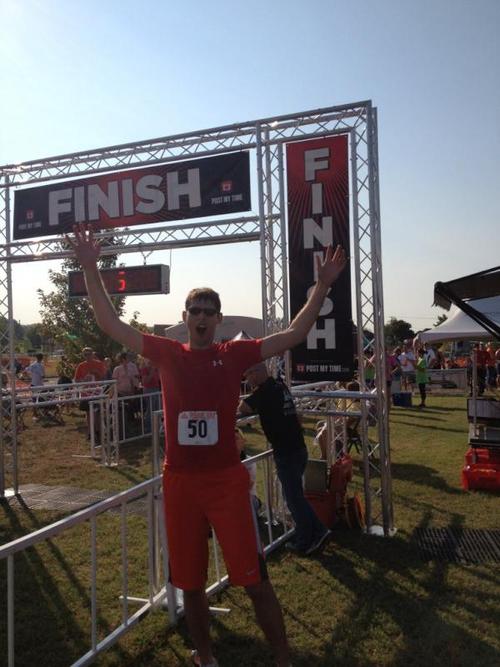“Decision is power.” — Tony Robbins
I’ve kept a private collection of writings for the past two years. I was fishing through that collection the other day when I found something that surprised me. A year ago this month, as I headed out to start my fellowship at RJI, I wrote this:
“Dad’s been asking me about what my schedule will look like at Mizzou. It’s something I’ve been thinking about, too. I know I want to get up early. I want to hit the phones. I want to write. I want to study. I want to read. I want to find time to be normal, to unwind, to exercise. But an exact schedule? I don’t know yet. I’ll have to decide soon, though.”
It’s funny to imagine now. A year ago, I didn’t have a schedule.
I woke up… whenever. I worked… whenever.
I was, in one word: Unspeakablylazyohmygodwasthatreallyme?
This was the single biggest mistake I made after I left Biloxi. I stopped sticking to a routine. I stopped waking up at a specific time. I stopped having a plan.
I started waiting for things to happen, instead of making things happen.
I stopped doing the work every single day — and the work has to get done every single day.
I’m telling you right now: Don’t be this guy.
Everyone can do great work. But first, you must start with this: By creating routine.
At a normal job, routine often feels like death. It sucks the life out of you.
But when you’re building or creating something, routine gives you essential structure. Studies show that if you give yourself a routine, your body starts to learn when it’s time to work. And by keeping a sleep schedule, your body learns how to recover for the next day’s work.
When you get off that routine, your body gets confused.
Ever been on vacation for a few days and then tried to return to work? That feeling — that struggle — is what happens when you lose your work routine. It can take days to get back into the flow of work.
Our bodies demand that flow — and demand that we stay in it.
The hard truth is that work does not just happen by accident. It cannot happen whenever you feel like making it happen. If you’re just sitting around waiting for inspiration, you will be sitting a long time.
You have to commit to the work. You have to make the choice to build a structure for yourself. A wake-up time. A bed time. A plan for the day.
You have to build the structure on which great work happens.
There’s a section in Andre Agassi’s great autobiography, “Open,” that I really loved. He’s talking about losing his focus and slipping in the rankings. He makes a choice. It’s time to change. He writes:
“And yet. Our best intentions are often thwarted by external forces – forces that we ourselves set in motion long ago. Decisions, especially bad ones, create their own kind of momentum, and momentum can be a bitch to stop. Even when we vow to change, even when we sorrow and atone for our mistakes, the momentum of the past keeps carrying us down the wrong road. Momentum rules the world. Momentum says: Hold on, not so fast, I’m still running things here. As a verse in a Greek poem goes: “The minds of the everlasting gods are not changed suddenly.””
This is the reason why New Year’s resolutions are so easily broken. A simple pledge one day is just the start of change. If intention and repeated effort aren’t paired together, the result is often failure.
The decision is yours. Change does not merely happen. It starts by creating a schedule and creating a plan. It starts by creating a platform on which work can get done.
It starts by committing — to that schedule, to work.
Don’t go at half speed. Don’t waste time before starting.
The sooner you get a plan in motion, the sooner the real work can begin.
That alarm clock photo comes via @juliaworthy134.









